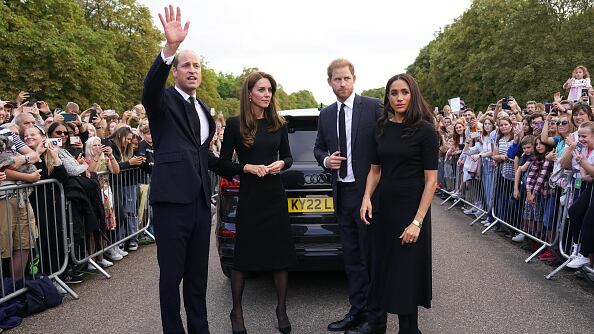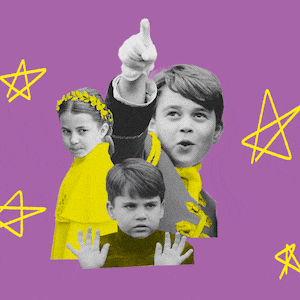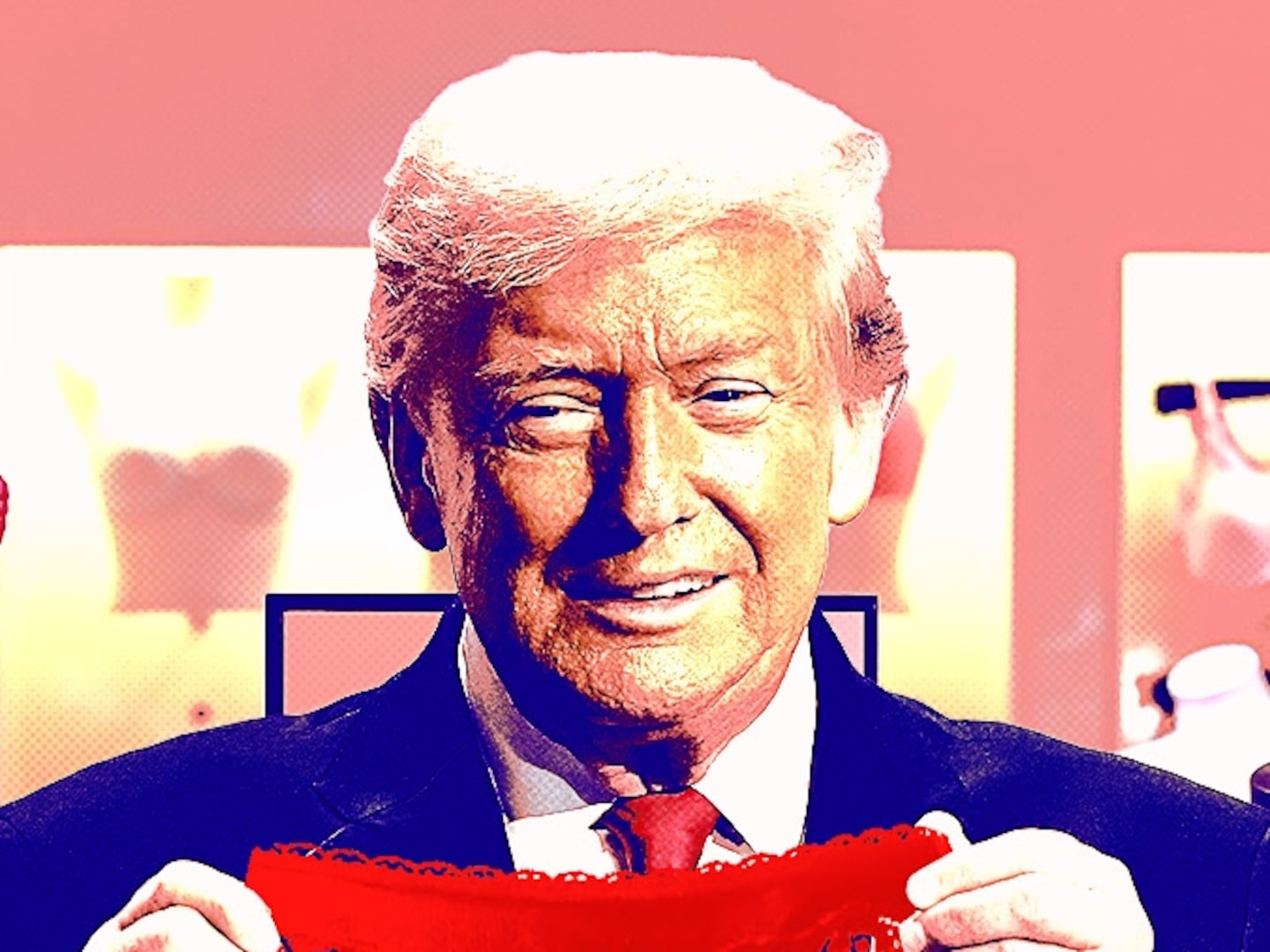Royalist is The Daily Beast’s newsletter for all things royal and Royal Family. Subscribe here to get it in your inbox every Sunday.
It was Kate Middleton who insisted that the famous phrase “recollections may vary” was left in Buckingham Palace’s official response to claims of racial insensitivity made by Prince Harry and Meghan Markle in their interview with Oprah Winfrey, it was claimed Friday.
“Steely” Kate’s involvement in pressing “home” the case for using the phrase is revealed in a new chapter of the paperback version of Valentine Low’s bestselling book Courtiers, excerpted Friday in the London Times. Low is also the royal correspondent for the Times.
Low says that the queen watched the interview on when it was shown on British TV, almost 24 hours after its American broadcast.
The next day, he writes, “serious negotiations” began over a response.
Low writes that William and Kate “sat together on a sofa” as they considered a draft statement which did not, at that moment, include the phrase “some recollections may vary.”
A source told Low: “It had a much milder version. The debate was, do you rise entirely above it and offer the olive branch of [Harry and Meghan being] ‘much loved members of the family’? Or is there some moment when you have to intervene and offer a view?”
William and Kate apparently said they wanted the draft statement “toughened up a bit,” to show “that the institution did not accept a lot of what had been said.”
The source says William said to the team: “It is really important that you guys come up with the right way of making sure that we are saying that this does not stand.”
The source said Kate was “right behind” her husband on the point.
Low says the phrase “recollections may vary” is said by some to be the work of Charles’ private secretary, Clive Alderton, but Low says it was authored by Jean-Christophe Gray, William’s then-new private secretary. (The Daily Beast has heard from an impeccable source that the phrase was the work of the queen’s then-press secretary, Donal McCabe.)
Low says that “at least two senior officials in other households were against its inclusion, because they feared that it would rile Harry and Meghan. But once the phrase had been added to the draft, it was—according to another source—the Duchess of Cambridge who pressed home the argument that it should remain.”
He cites a source as saying that Kate said: “History will judge this statement and unless this phrase or a phrase like it is included, everything that they have said will be taken as true.”
The source said of Kate: “She does not get as much credit as she should, because she is so subtle about it. She is playing the long game. She has always got her eye on, ‘This is my life and my historic path and I am going to be the Queen one day.’”
Low says that the “toughened-up draft” was approved within hours by the queen and promptly issued.
In another section of the book, Low gives fascinating insight into the complex workings of the family dynamic.
He cites a former courtier as saying, “If you are in government, it is about policy. But this is family. There’s no policy. It’s all emotionally managed. All the infighting and maneuvering—at the heart of it, it is this dysfunctional family that, rather than communicating with each other, can communicate down through their courtiers, which empowers and reinforces this bad behavior, whether it’s sanctioned or not.”
In April, respected royal chronicler Robert Jobson claimed in his new book, Our King—extracted in the Daily Mail—that the Windsor walkabout undertaken by Prince William, Kate Middleton, Prince Harry, and Meghan Markle was an “illusion” of togetherness, which Middleton considered “one of the hardest things she’d ever had to do,” given the “ill feeling” between the two couples.
It had been William’s idea to project an image of unity, but Jobson writes: “Catherine later admitted to a senior royal that, such was the ill feeling between the two couples, the joint walkabout was one of the hardest things she'd ever had to do.”







